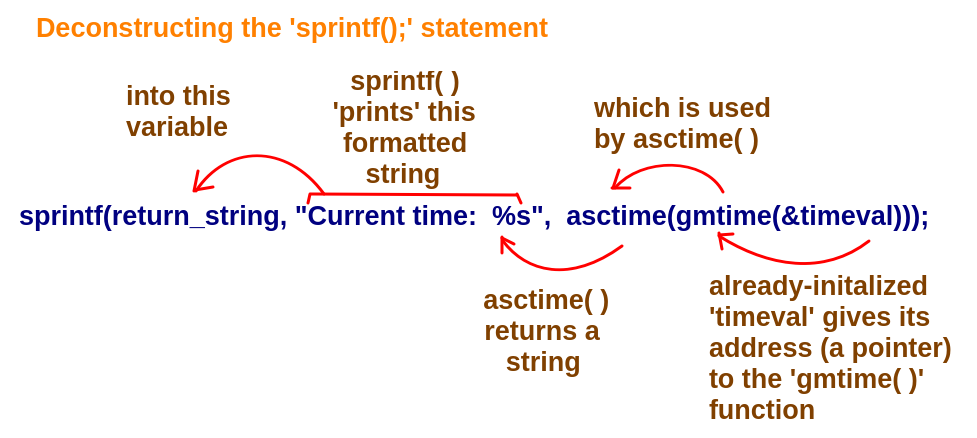So far we've only discussed 'main()' as a block of code that RETURNS a value. 'main()' is the singularly special function all 'C' programs must have one of. Just as functions can utilize all variety of arguments, functions can return all sorts of values - even returning a structure.
 |
Typically, the life-span of a variable within a function is limited to the duration that function is used. Using "static char return_string[]" specifies that variable persists after it is first allocated & used. |
/* pgm12 source */
#include <stdio.h>
#include <stdlib.h> // so the compiler understands 'rand()' & 'srand()'
#include <time.h> // for any "time-related" functions
char *show_time_now(void);
int get_random_number(int);
int main(void) {
printf("\n");
printf("Function 'get_random_number()' returned:\n\t%d\n", get_random_number(200));
printf("\n");
printf("Function 'show_time_now()' returned:\n\t%s\n", show_time_now());
return(0);
}
int get_random_number(int modulo_val) {
// use current time as seed for random generator
// remove this commented-out line after a few test-runs
// srand(time(NULL));
return(rand() % modulo_val); // 'constrain' a larger number to 'modulo_val' or lower
}
char *show_time_now() {
static char return_string[35];
time_t timeval; // a particular variable type required by function 'time()'
timeval = time(NULL); // 'time()' specifically needs a 'NULL' argument
sprintf(return_string, "Current time: %s", asctime(gmtime(&timeval))); // this line explained in article
return(return_string);
}

